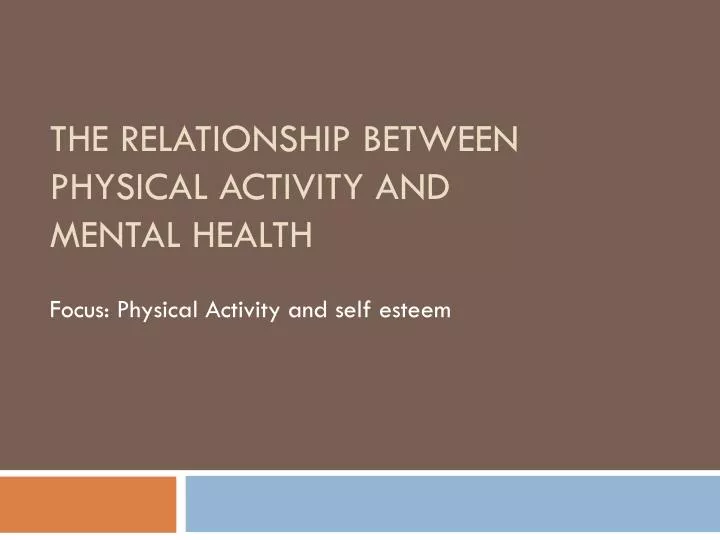

If you have a mental health condition, there may be factors that affect the amount or type of physical activity you can do. Things to consider before getting started If you enjoy it and it makes you feel good, that’s important. Remember that exercise isn’t about losing weight or changing your body shape. Anything you do to get active and reduce the amount of time you spend sitting or lying down is good.

Think about your current fitness levels, how much time you have to exercise, and what feels realistic to you.

This could be yoga, pilates, weight lifting, wheeling a wheelchair, or carrying heavy shopping bags. The guidelines also suggest doing strength-building exercises at least two days a week. Start small and build up slowly if you don’t do much physical activity. This might sound like a lot, but don’t be put off if you don’t feel you can manage this now.
#PHYSICAL ACTIVITY AND MENTAL HEALTH FREE#
The NHS website has different examples of activities you could try as well as free online exercise videos. Government guidelines suggest adults aim to do 150 minutes of moderate activity a week or 75 minutes of vigorous activity a week. You could try brisk walking, mowing the lawn, dancing, swimming, following an exercise video or online class, trying a new sport or anything that gets your body moving. Finding an activity you like and are able to do regularly is more important than pushing yourself to do something you don’t enjoy. How active do I need to be?Īny amount of physical activity is better than none. Exercising with a disability can be frustrating if you’re not able to do the type of activity you want or are used to be able to do, but it’s important to work with your body. The NHS has advice about getting active if you have a disability or health condition, with tips on building activity into your day and finding accessible activities and classes. Our tips below on things to consider before starting exercise may help. Nature doesn’t have to mean forests or national parks either: walking to a local common, visiting a friend’s garden or simply noticing trees and flowers planted by the roadside can boost your mental well-being.įor some of us, it can be hard to be active, perhaps because we have a mental or physical disability or health condition. Research shows that being in nature can make us feel happier, feel our lives are more worthwhile, and reduce our levels of depression and anxiety. It’s even better if you’re able to get active outdoors. less tension, stress and mental fatigue.It can also be a great way to meet people, have a break from daily life and gain confidence.

Finding an activity you enjoy can give you a goal to aim for and a sense of purpose. Not bad for something many of us can do for free!īeing active doesn’t have to mean taking out an expensive gym membership or running marathons. Physical activity is not only good for your body, but it's also great for your mind.īeing active releases chemicals in your brain that make you feel good - boosting your self-esteem and helping you concentrate as well as sleep well and feel better. Things to consider before getting started.This content mentions anxiety and panic attacks, which some people may find triggering.


 0 kommentar(er)
0 kommentar(er)
